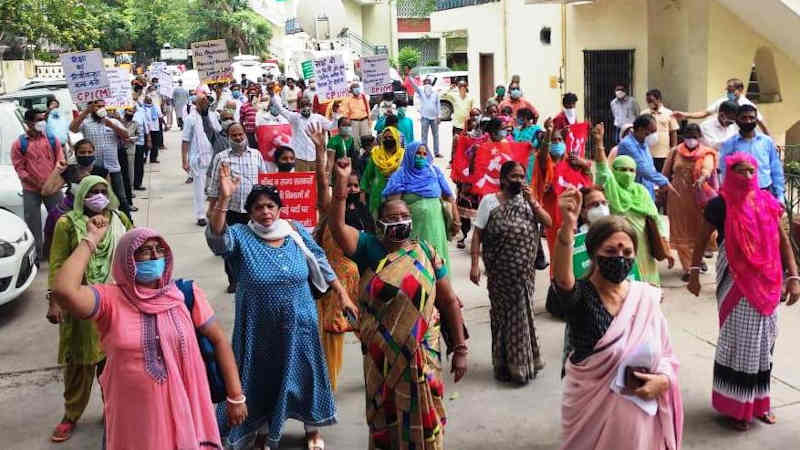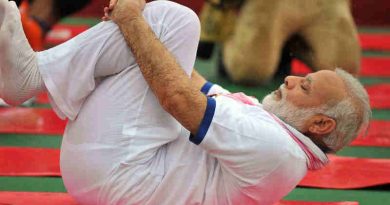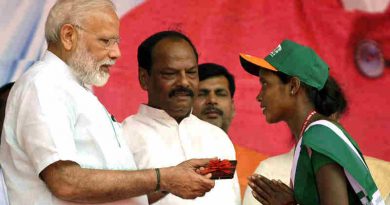Activists in India Demand Right to Protest on Streets

Commoners have realized that if they have to challenge the autocratic regimes, they will have to show mass resistance on the streets while the social media platforms are not quite effective to continue their struggle.
By Rakesh Raman
A slew of activists, who were not allowed by the government to demonstrate freely under the pretext of following the coronavirus safe-distancing guidelines, have planned to occupy the streets.
They have decided to protest on the streets of India instead of just sitting on the inert social media platforms such as Facebook and Twitter, which are not effective if you want to raise your voice against the despotic regimes.
“It’s time to hit the streets and let our voices be heard again. Let’s reclaim our right to protest,” the activists including Arundhati Roy, Yogendra Yadav, Prashant Bhushan, and others declared. They will be holding a press conference today (October 22) in New Delhi to announce their plan of action.
Although a number of protests are happening in India against the autocratic government of PM Narendra Modi and his party BJP, the government does not allow the assembly of people with the excuse that coronavirus will spread at crowded places.
#TakeBackTheStreets
Its time to hit the streets and let our voices be heard again! Let’s reclaim our right to protest! Do attend the Press Conference at the Press Club of India tomorrow at 3:30PM. pic.twitter.com/MNNQdQ8Hwl— We The People of India (@ThePeopleOfIN) October 21, 2020
In order to meekly obey the government diktat, most street protests fizzle out after a couple of days and the protesters (most of them are lethargic) go back to sit sluggishly on social media sites. As a result, the Modi government has been taking arbitrary anti-people actions that are not being challenged by the affected citizens.
In fact, the street protests against the autocratic rulers are intensifying in many countries including Russia, Israel, Belarus, Thailand, Hong Kong, Pakistan, Nigeria, and the U.S. However, the citizens as well as political parties of India are so weak and terrified that they prefer to sit at their homes instead of sitting on the streets to protest.
After crushing the protests against the discriminatory citizenship laws (such as the Citizenship Amendment Act or CAA) under the coronavirus cover, the Modi government is now trying to suppress the ongoing farmers’ protests which are expected to reach Delhi after sporadic demonstrations in Punjab.
According to a new global report released by Freedom House, the Covid-19 pandemic has deepened a crisis for democracy around the world, providing cover for governments to disrupt elections, silence critics and the press, and undermine the accountability needed to protect human rights as well as public health.
However, now the commoners have realized that if they have to challenge the autocratic regimes, they will have to show mass resistance on the streets while the social media platforms – including Facebook and Twitter – are not quite effective to continue their struggle.
By Rakesh Raman, who is a national award-winning journalist and social activist. He is the founder of a humanitarian organization RMN Foundation which is working in diverse areas to help the disadvantaged and distressed people in the society.

![CPI(M) leader Ms Brinda Karat leading the protesters in Delhi on August 26, 2020. Photo: CPI(M) [ File Photo ]](https://www.ramanmedianetwork.com/wp-content/uploads/2020/08/bkpro-800x445.jpeg)



